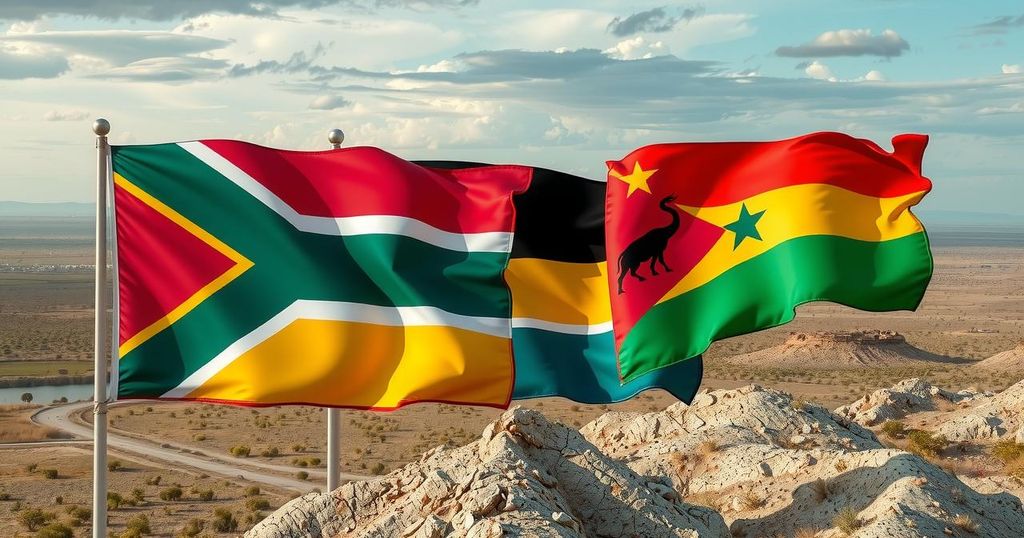The 2024 elections in Southern Africa reflect a significant political evolution where former liberation movements are challenged by new demands from electorates, particularly the youth. South Africa’s ANC requires coalition governance amidst dissatisfaction, Botswana sees a shift in leadership seeking economic reform, Mozambique grapples with calls for political change despite unrest, and Namibia’s SWAPO maintains its position despite public yearning for transformation. These developments emphasize the urgent need for responsiveness to rising social issues and economic grievances.
Elections in Southern Africa during 2024 indicate various political evolutions across the region, notably characterized by unique circumstances that diverge from a straightforward narrative of change. In South Africa, the ruling African National Congress (ANC) lost its majority, giving rise to coalition governance and exposing discontent among electorates dissatisfied with traditional leadership. Analysts observe that the former president, Jacob Zuma, continues to shape political dynamics, specifically through appealing to Zulu nationalism and voicing grievances from marginalized communities.
In contrast, Botswana’s election secured a victory for the Umbrella for Democratic Change (UDC), marking a significant transition away from decades of rule by the Botswana Democratic Party (BDP). The new leadership must now address economic woes and high unemployment rates stemming from a reliance on diamond revenues.
Mozambique’s electoral scenario reveals a complex struggle with demands for a political shift, as long-standing liberation party Frelimo faced a disenchanted populace amid allegations of electoral fraud. The tensions continue in this context, where a nascent opposition leader garners support, yet struggles remain to reshape political consciousness among citizens.
Lastly, Namibia’s elections reinforced the established power of the South West Africa People’s Organisation (SWAPO) despite societal calls for reform. Despite claims of electoral misconduct, the ruling party’s tenure persisted, showcasing the challenges of appealing to a younger demographic yearning for substantial political and economic improvements.
Overall, Southern Africa’s political landscape reveals an increasing tension between the legacy of liberation movements and the emergent demands for change from disenfranchised voters, especially younger constituents seeking solutions to socioeconomic disparities.
The Southern African political landscape is witnessing critical electoral transformations marked by historical liberation movements struggling to maintain their dominance amid rising public dissatisfaction. Nations such as South Africa, Botswana, Mozambique, and Namibia are experiencing shifts that reflect the electorate’s urgency for fresh leadership and more responsive governance. Specifically, long-standing parties are grappling with increasing calls for reform in the context of social inequality, economic stagnation, and demands for accountability. These developments signal a potential transition from historical liberation narratives towards contemporary political discourses led by younger, more urban constituencies seeking meaningful change.
The 2024 elections across Southern Africa highlight a complex interplay between established political entities and rising calls for renewal. As former liberation movements face increasing disenchantment from constituents, particularly younger voters grappling with economic and social inequalities, a significant shift appears imminent. The region’s leadership must contend with these dynamics and address the electorate’s demands for effective governance, sustainable economic policies, and enhanced social justice to retain legitimacy and political power.
Original Source: www.fairobserver.com






